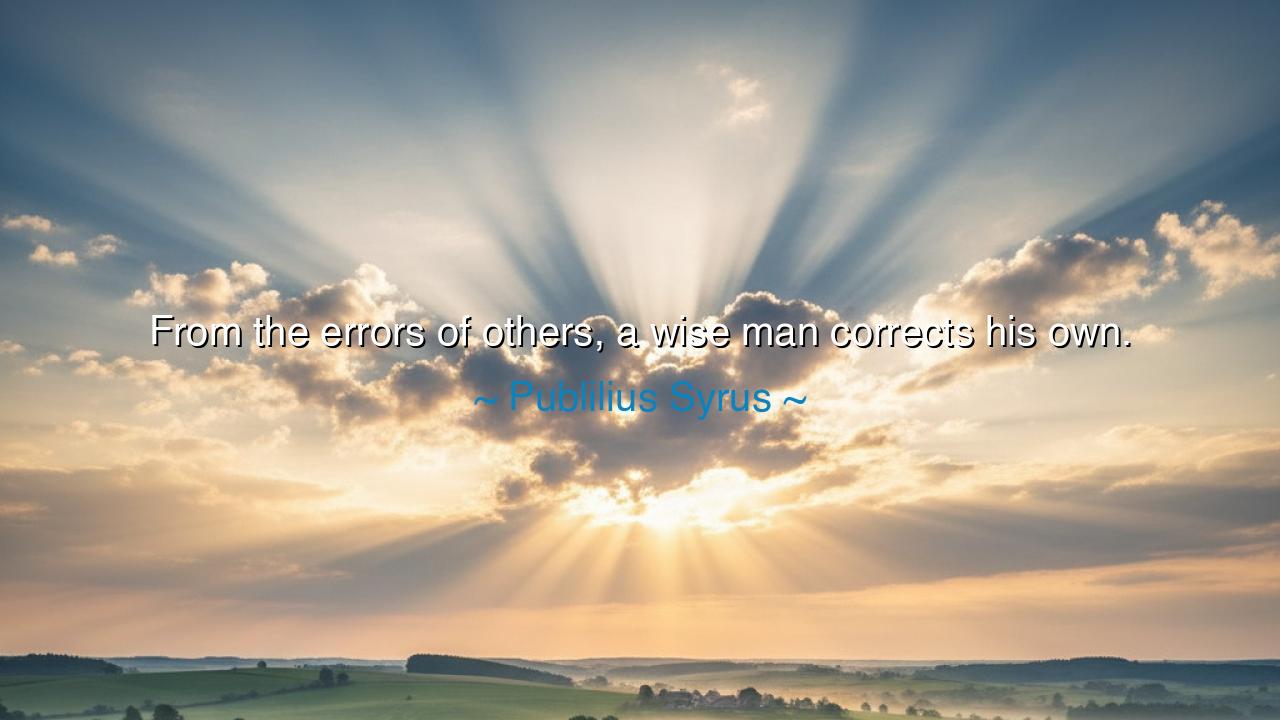
From the errors of others, a wise man corrects his own.






Hearken, children of the ages, and let the voice of Publilius Syrus echo within your hearts: “From the errors of others, a wise man corrects his own.” In this simple yet profound utterance lies the eternal wisdom of observation and reflection. The fool stumbles repeatedly upon the same stone, blinded by pride and impatience; the wise, however, sees the missteps of their brothers and sisters, and through such contemplation, fashions a life of prudence and foresight. Learning from others is the lantern that illuminates the path where experience alone may fail.
The origin of this truth springs from the Roman sage and moralist, Publilius Syrus, a freed slave whose words transcended his humble beginnings. Living in an age of empire and strife, he observed the myriad human failings around him—ambition unchecked, folly repeated, hubris rewarded too often. From these patterns, he distilled a teaching for generations: the path to wisdom is not only in personal trials, but in the careful study of the lives and errors of others. Such reflection transforms the world’s folly into a guide for the prudent soul.
Consider the story of Alexander the Great, who, though a conqueror of unparalleled ambition, studied the mistakes of his predecessors. Observing the fate of earlier generals who overreached or neglected their supplies, he adapted his strategies and avoided many pitfalls. In this, he exemplified the essence of Syrus’ maxim: the wise observe, learn, and correct themselves, transforming the failures of others into stepping stones toward greatness.
Yet this teaching is not solely for rulers and warriors. In the quiet chambers of everyday life, parents watch the missteps of their children, artisans learn from the failures of colleagues, and neighbors witness the consequences of pride or greed. By internalizing these lessons, the soul is fortified, avoiding unnecessary sorrow and cultivating prudence, patience, and humility. The errors of the world, though bitter, become the sustenance of the intelligent heart.
History is replete with such examples: the founders of the United States, observing the collapse of earlier republics and empires, crafted a government with checks, balances, and freedoms designed to avoid tyranny. Through careful study of the past, they transformed human failing into lasting wisdom, embodying Syrus’ insight across generations.
Thus, beloved seekers of truth, take heed: the world is rich in errors, yet those who watch attentively are enriched beyond measure. Let the mistakes of others be your teachers, and in correcting your own ways, build a life of wisdom, honor, and enduring insight. In this practice, the soul becomes immortal, for it learns not only from its own suffering but from the shared experiences of all humanity.






AAdministratorAdministrator
Welcome, honored guests. Please leave a comment, we will respond soon